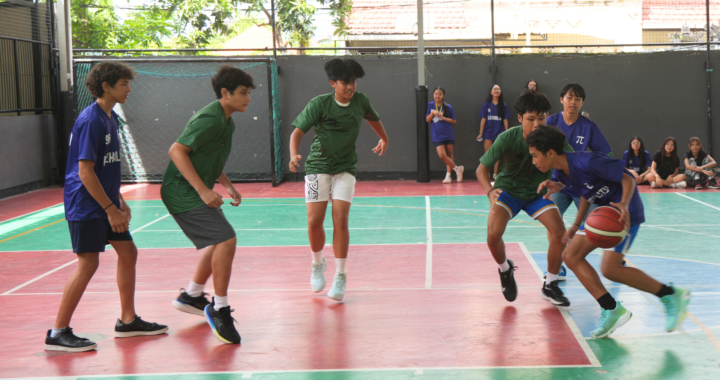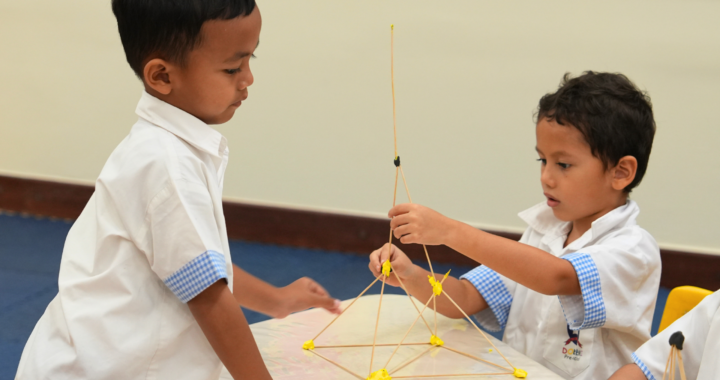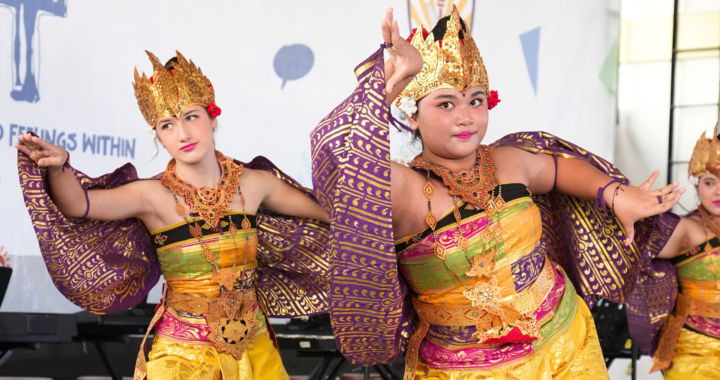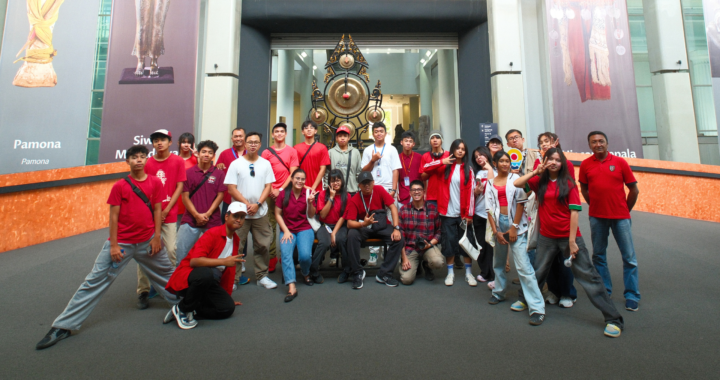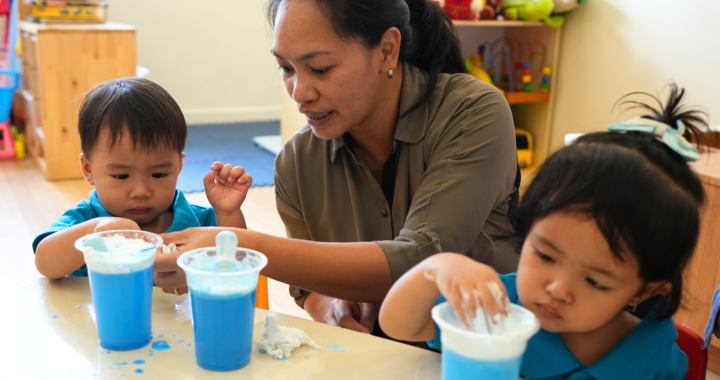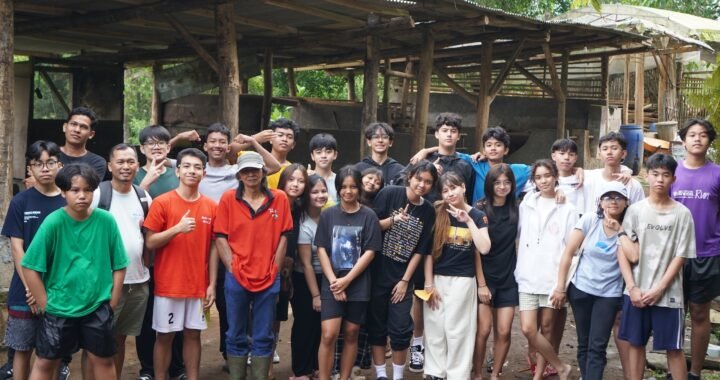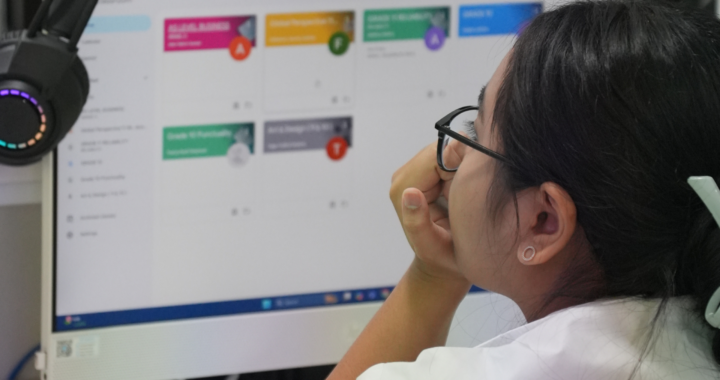In the whirlwind of modern parenting, sometimes it feels overwhelming to juggling between careers, family relocations, maintaining a good parenting, and endless to do lists. Embracing holistic wellness parenting isn’t just about surviving, it’s about thriving together.
But what if you could transform that chaos into harmony? Enter holistic wellness parenting: a game changing approach that prioritizes the interconnection between your household and yourself.
As an International School in Bali, Santosa Intercultural School supports this philosophy to nurture resilient, globally minded children.
Drawing from expert insights on how holistic wellness transforms lives, here is a guide that empowers you to create a balanced, loving home where everyone flourishes. Discover how a small and intentional steps can lead to profound family well being.
Understanding Holistic Wellness Parenting: A Comprehensive Approach
Holistic wellness parenting redefines health by viewing your family as an interconnected system, rather than isolated individuals.
Traditional parenting advice often focuses on quick fixes like strict diets for kids or screen time limits but holistic wellness parenting integrates physical, mental, emotional, spiritual, social, and environmental dimensions for true harmony.
This means addressing not just your child’s bedtime routine, but how it connects to your emotional state, family bonds, and even your home environment.
At its core, holistic wellness is about maintaining and balancing your family’s well being and life satisfaction. Unlike conventional methods that treat symptoms in isolation, this kind of parenting recognizes the mind and body connection, where mental clarity influences physical energy, and emotional balance builds stronger relationships.
For busy global parents perhaps managing time zones for work calls while adapting to new cultures is revolutionary. It shifts from reactive parenting (like dealing with meltdowns after a long day) to proactive nurturing, where wellness becomes a family foundation.
At Santosa Intercultural School, we care about holistic wellness parenting in our daily programs. Our curriculum, blending Indonesian national standards with Cambridge International, incorporates mindfulness sessions and outdoor activities that support families in global transitions.
Holistic wellness parenting equips you to handle this by prioritizing a good rest for physical recovery, mindfulness for mental calm, and family rituals for emotional security, aligning perfectly with our school’s vision of growing together while flourishing as individuals.
The Core Pillars of Holistic Wellness Parenting
To implement holistic wellness parenting, focus on its five key pillars, tailored for family life in a fast paced world.
1. Physical Vitality and Movement: Building Strong Bodies Together
Physical health is the bedrock. Try to enhance cardiovascular function, energy levels, sleep quality, and consume booster when needed. Start with simple activities like morning walks along Bali’s beaches or mindful yoga sessions at home. For global families on the move, pack portable resistance bands for hotel rooms or go to gym before you go to your office.
At Santosa Intercultural School, we encourage physical vitality through intercultural sports and nature based play, helping children build strength while embracing diverse traditions.
Encourage kids to join in turn it into a game where everyone tracks steps with a family app. This not only boosts physical health but also models lifelong habits, reducing risks of obesity or fatigue in busy lifestyles.
2. Mental Clarity and Emotional Balance: Nurturing Resilient Minds
Mental and emotional wellness are intertwined, helping families cope with stress, anxiety, and depression through mindfulness and the mind body link.
Busy parents often face burnout from multitasking, but holistic wellness parenting teaches emotional check ins through simple questions such as “How are we all feeling after that long flight?” or “Do you have a good night’s sleep?”. Practice daily mindfulness, like guided breathing exercises during car rides.
For children, this builds emotional regulation, turning potential tantrums into thoughtful moments. In expat life, where homesickness can strike, these tools foster adaptability and comfort, complementing our school’s focus on character building and critical thinking.
3. Spiritual Connection and Purpose: Finding Meaning as a Family
Spirituality here is not about religion, it’s about purpose and inner peace, rewiring the brain for resilience and healthier gene expression. In holistic wellness parenting, creating family gratitude journals or evening reflections will be an important matter, such as “What made us feel connected today?”.
For multicultural families at Santosa Intercultural School, this pillar helps kids amid change, like sharing stories from different cultures during dinner.
It instills a sense of belonging, turning busy schedules into purposeful discussion, in line with our mission to empower students as compassionate global citizens.
4. Social Connections: Strengthening Family Bonds
Strong relationships are key, lowering anxiety, boosting self esteem, and enhancing empathy. Holistic wellness parenting emphasizes quality time, such as device free meals or virtual calls with extended family across borders.
Dr. Gabor Mate says that “Safety is not the absence of threat; it is the presence of connection.” In a modern life, nurture these ties through playdates or community events, helping children build social skills for diverse environments.
5. Environmental Influences: Creating Supportive Spaces
Your surroundings matter, and friendly homes with natural light and clutter free zones reduce mental health risks. For parents, this means creating kid friendly spaces: add indoor plants for air quality, a designated desk for studying, or cozy reading nooks for calm.
In Bali’s tropical climate at Santosa Intercultural School, we incorporate outdoor elements like gardens in our facilities. This pillar ensures your home supports family wellness, countering the disarray of travel.
The Transformative Benefits for Busy Global Families
Adopting holistic wellness parenting yields remarkable results. The balance between physical, mental, and emotional well being is important to create a balanced lifestyle.
This could make an enhanced resilience: Parents report less burnout, while kids show better focus and empathy. In modern life, it prevents isolation from frequent moves, fostering deeper connections and life satisfaction.
Over 300 million people used wellness apps in 2023, proving technology aids tracking progress. The ripple effect? Healthier gene expression, reduced chronic issues, and a joyful home where everyone thrives, aligning with our school’s holistic curriculum that prepares students for positive global impact.
Practical Strategies to Implement Holistic Wellness Parenting
Ready to start? Here’s your step by step guide.
Assess Your Family’s Wellness
Use tools like the Wellness Evaluation of Lifestyle or Body Mind Spirit Inventory to gauge strengths and gaps across pillars. Involve the kids to make it a fun family quiz night.
Set SMART Goals
Create Specific, Measurable, Achievable, Relevant, Time with goals, like “Family yoga three times a week for one month”. This preventive focus boosts outcomes in busy schedules.
Build Daily Rituals
Incorporate intention, attention, and repetition: Morning meditation for clarity, mindful walks for movement, nature time for spirituality, evening reflections for gratitude, and digital detoxes for balance.
Master Time and Energy Management
Align with ultradian rhythms (90-120 minute cycles): Tackle high energy tasks like ourdoor games during peaks, then rest. The 1% Better Approach, don’t forget to add one minute to rituals daily to ensure sustainability.
Leverage Technology and Community
Track with apps, but set your boundaries. Join parent groups or schools for support through workshops and community events.
Overcoming Challenges in Holistic Wellness Parenting
Busy global life brings hurdles: Time constraints from work, cultural or language barriers in new places, or resistance from kids.
Counter it with the flexibility to shorten rituals on hectic days. Educate as a family: Explain benefits to gain buy in. If it seems overwhelming, seek professional guidance, like coaches or personal psychologists.
At Doremi Preschool and Santosa Intercultural School, we address these through our supportive environment, helping families overcome challenges with tailored advice from our in-house psychologists that is available from our kindergarten up to our secondary campus.
Remember, “Wellness isn’t a destination, it’s a continuous trip of growth and discovery.” Progress, not perfection, is the key.
Integrating Holistic Wellness in Education and Daily Life
Schools amplify holistic wellness parenting. At Doremi Preschool and Santosa Intercultural School, an International School in Bali, under the Doremi Foundation, we weave these pillars through physical play, emotional discussions, and cultural explorations.
In daily global life, pack wellness kits for travel: Essential oils for calm, healthy snacks for vitality. This healthier lifestyle turns challenges into strengths, fostering the compassionate, resilient students we nurture.
Empower Your Family: Start Your Holistic Journey Today
Holistic wellness parenting transforms a busy modern lifestyle from stressful to sustainable. By balancing the main pillars, setting goals, and building rituals, you’ll nurture a family that’s resilient, connected, and thoughtful.
Try with one assessment today, and your future selves will thank you. Seeking a school that supports this? Explore Doremi Preschool and Santosa Intercultural School, an International School in Bali, for holistic, intercultural education.
Professional Source from:
https://aihcp.net/2024/12/11/how-holistic-wellness-transforms-your-life/
Read more – Doremi Foundation – International School in Bali
